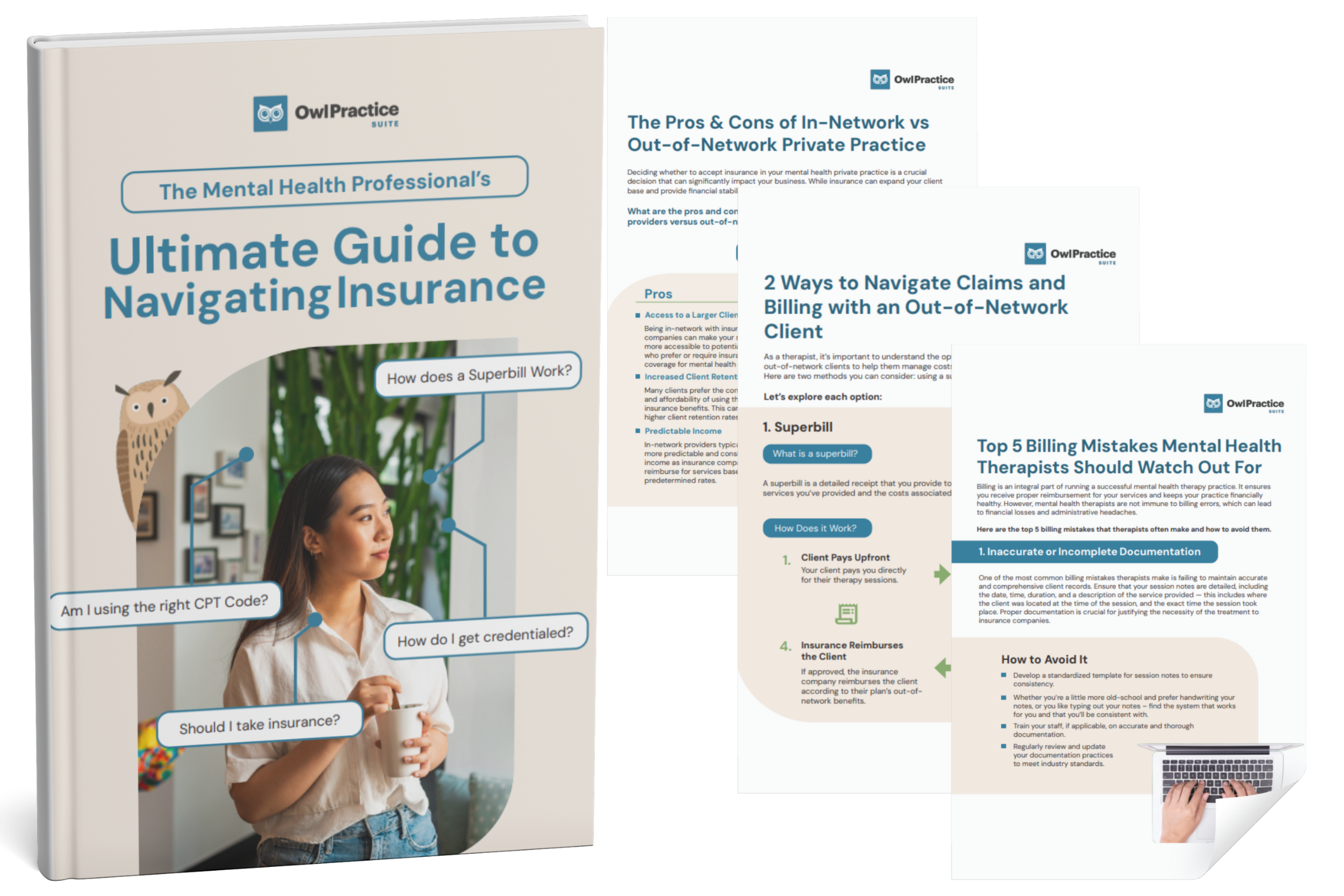Deciding whether to accept insurance in your mental health private practice is a crucial decision that can significantly impact your business. While insurance can expand your client base and provide financial stability, it comes with its own set of advantages and disadvantages.
What are the pros and cons of being in-network with insurance providers versus out-of-network, or maintaining a cash-based practice?

In Network Practice
Pros
- Access to a Larger Client Pool
- Being in-network with insurance companies can make your services more accessible to potential clients who prefer or require insurance coverage for mental health services.
- Increased Client Retention
- Many clients prefer the convenience and affordability of using their insurance benefits. This can lead to higher client retention rates.
- Predictable Income
- In-network providers typically have more predictable and consistent income as insurance companies reimburse for services based on predetermined rates.
Cons
- Lower Reimbursement Rates
- In-network providers often face lower reimbursement rates compared to out-of-network or cash-based practitioners. These rates may not fully reflect your expertise and the value of your services.
- Administrative Burden
- Dealing with insurance companies can be administratively demanding, involving tasks such as billing, claim submission, benefits verifications, denials and authorization requests.
- Limited Control Over Client Care
- Some insurance companies may dictate the type and duration of treatment, potentially limiting your autonomy as a mental health professional.
Out-of-Network or Cash-Based Practice
Pros
- Higher Earning Potential
- Out-of-network or cash-based practices allow you to set your fees and potentially earn more for your services.
- Greater Clinical Autonomy
- You have more control over the treatment methods, frequency, and duration of sessions, ensuring that your clients receive the care they need.
- Reduced Administrative Burden
- Without insurance billing, you can streamline your administrative tasks, making your practice more efficient.
Cons
- Narrower Client Base
- Some clients may be unable or unwilling to pay out-of-pocket for mental health services, reducing your potential client base.
- Financial Insecurity
- Depending solely on self-pay clients can lead to income variability, especially during slower periods.
- Marketing and Networking Challenges
- You’ll need to invest more in marketing and networking to build and sustain your practice.
The decision to accept insurance or maintain a cash-based practice in your mental health private practice is highly individual. Consider your goals, preferences, and your target client base when making this decision. It’s not uncommon for practitioners to mix both in-network and out-of-network clients to balance accessibility with higher income potential.
Summary
Ultimately, the key is to weigh the pros and cons and align your practice with your professional and financial objectives.
Whichever path you choose, providing high-quality care should remain your top priority, ensuring that your clients receive the support they need to thrive.

Get the “Ultimate Guide to Navigating Insurance” eBook Below!
Reduce clinical administrative tasks and transform more lives with Owl Practice. Owl Practice provides all the tools you need to make your practice successful. Join the thousands of care professionals using Owl to run their practice every day.



